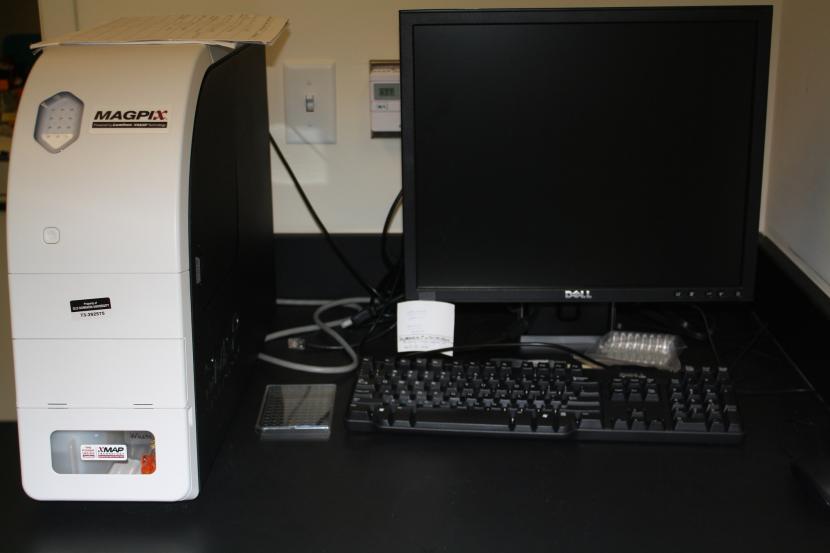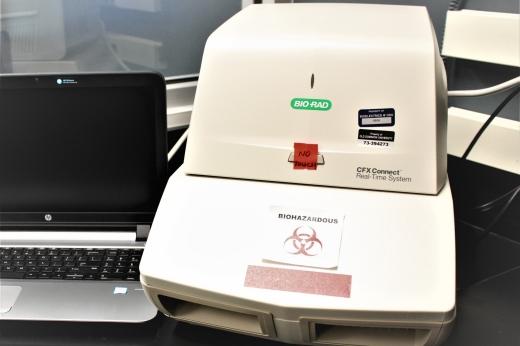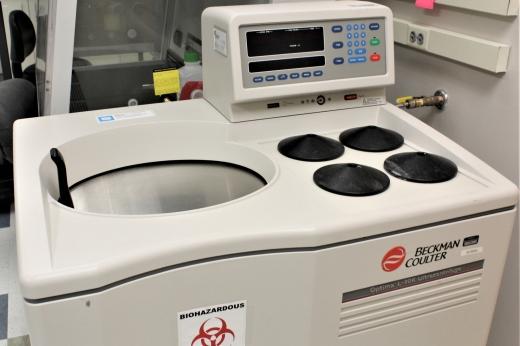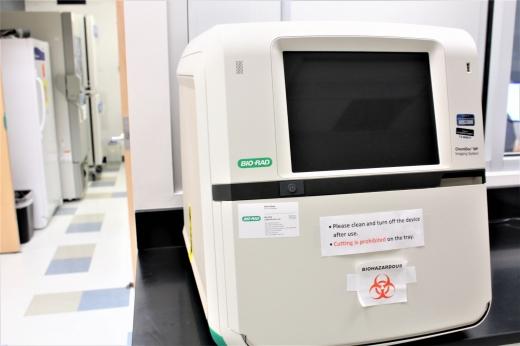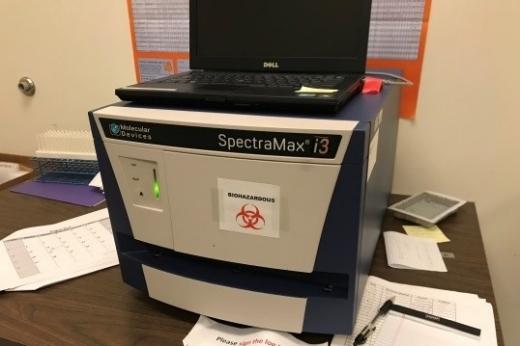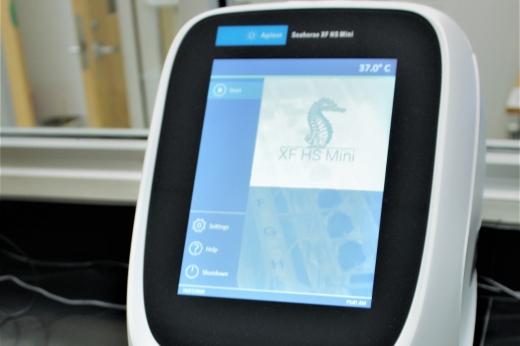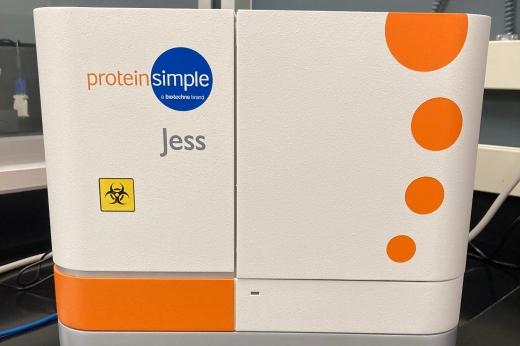Instrumentation
The Center provides essential training for all instruments and technical support for troubleshooting. We also provide consultation, hands-on service on experimental design and data analysis. For more info regarding services and rates contact our Core Facility Supervisor Dr. Yu (Ellen) Jing.
MAGPIX Analyzer
The MAGPIX analyzer, manufactured by Luminex, is a device using xMAP technology, which incorporates magnetic beads, fluorescent labeling and CCD imaging techniques, to conduct multiplex quantitative and qualitative analysis of protein or nucleic acid molecules. It is capable of examining up to 50 analytes with the sensitivity of ~106 copies of DNA or single-digit pictogram levels of protein in up to a one-hour reading period of time. Users need to purchase the assay kits which are commercially available on a wide range.
Resources
https://www.bio-rad.com/en-us/product/bio-plex-magpix-multiplex-reader?ID=M3VE8D15
RT-PCR
The real-time PCR (RT-PCR) or quantitative PCR (qPCR) machine, manufactured by BioRad and modeled as CFX Connect, offers an easy-to-grab tool for amplification and quantitative analysis of DNA and/or RNA. It works with a 96-well plate platform with excitation and emission wavelength of 450-580 nm. Reaction volume ranges at 1-50 ul and it detects up to 2 targets per reaction with the sensitivity up to 1 copy of DNA.
Resources
Ultracentrifuge
The ultracentrifuge, manufactured by Beckman Coulter and modeled as Beckman Coulter Optima L-90K offers refrigerated high performance centrifugation for separation of small particles such as vesicles and viral particles. There are two rotors available in our Center, the SW 40 Ti wing rotor providing up to 290,000 g of centrifugation force and the Type 70 Ti angle fixed rotor providing up to 500,000 g of centrifugation force. Special tubes are required for ultracentrifugation.
Resources
https://sbmsaiumu.files.wordpress.com/2012/04/type-70-ti.pdf
https://btiscience.org/wp-content/uploads/2014/10/SW-41-Ti.pdf
Gel and Blot Imager
The gel imaging system, manufactured by BioRad and modeled as ChemiDoc MP, offers a wide range of imaging from UV to near infrared light (NIF) on gels or blots for DNA and protein identification, quantification and documentation. It is capable of conducting colorimetric, fluorescent as well as chemiluminescent detections for up to three colors at a time. With RioRad stain-free gel, normalization can be done without running house-keeping genes.
Resources
https://www.bio-rad.com/en-us/product/chemidoc-mp-imaging-system?ID=NINJ8ZE8Z
Plate Reader
The plate reader manufactured by Molecular Devices and modeled SpectraMax i3, is a popular tool for quantitative or qualitative detection of molecular analytes such as proteins, nucleic acids via light beam assisted immune- or biochemical reactions. Our machine holds three light detection modes, absorbance, fluorescence and luminescence in one unit, and is able to read from both sides of a plate of 6-1536 wells for a spectrum ranging from 230-1000 nm at the user's choice. There are also multiple types of reading options such as kinetics, well scan and spectrum in addition to most commonly used endpoints.
Resources
Seahorse XF HS Mini Analyzer
The Agilent Seahorse XF HS Mini Analyzer with the XF HS Miniplate delivers the highest sensitivity and best in Seahorse XF data quality, workflow, and user experience - all while using less sample. The analyzer measure mitochondrial respiration and glycolysis as well as ATP production rate of live cells in an eight-well miniplate format.
Resources
Jess - capillary Western Blotting (Proteinsimple)
The Jess instrument manufactured by ProteinSimple, a Bio-Techne brand, is an instrument for faster and easier multiplexing Western blotting. It automates capillary-based protein separation and detection, ultimately shortening the Western blotting process from 1-2 days to 3 hours. Reagents and samples are loaded into microplates and proteins are separated by size using capillaries. There are 13- and 25- capillary formats to perform up to 12- and 24- blots, respectively along with the protein ladder. Detection with chemiluminescence, fluorescence or both can be done on one plate in one run. Reagents, plates and capillaries are at user's cost or purchase.
Resources



